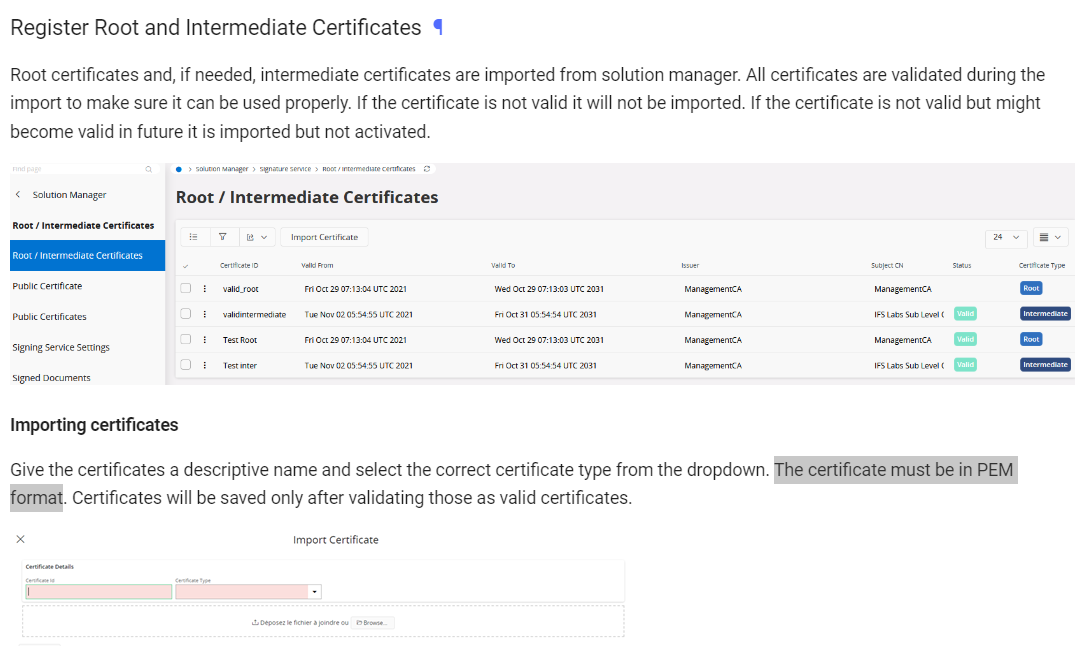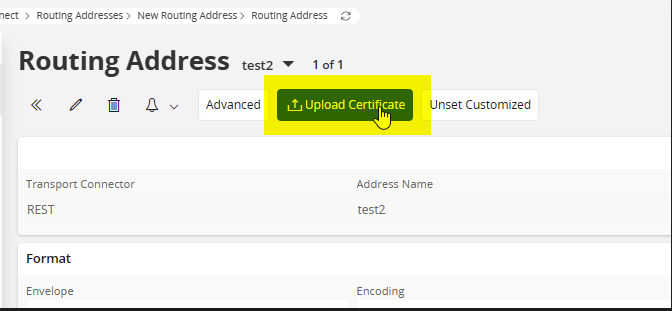Hi,
I have event actions with type - Rest Call. That generate a outboud message from IFS. This message fails by the below error
ExecutionException from Sender thread
Caused by: ifs.fnd.connect.senders.ConnectSender$TemporaryFailureException: Exception while sending data
Caused by: javax.net.ssl.SSLHandshakeException: PKIX path building failed: sun.security.provider.certpath.SunCertPathBuilderException: unable to find valid certification path to requested target
Caused by: sun.security.validator.ValidatorException: PKIX path building failed: sun.security.provider.certpath.SunCertPathBuilderException: unable to find valid certification path to requested target
Caused by: sun.security.provider.certpath.SunCertPathBuilderException: unable to find valid certification path to requested target
As per IFS, we should be able to import certificated by our own in IFS cloud.
This event action doesn’t use Routing addresses. But I tried to import the certificates using a dummy routing address. After importing there is no clue in the routing address whether we imported a certificate or not.
However that doesn’t solve the error.
Then I tried the below location

I was able to import the intermediate certificate but not the root certificate. For the root certificate it gives validation errors.

These certificated are correct and use in APP10.
Does any one know the correct place to import the certificates in IFS cloud which are needed for integrations ?










